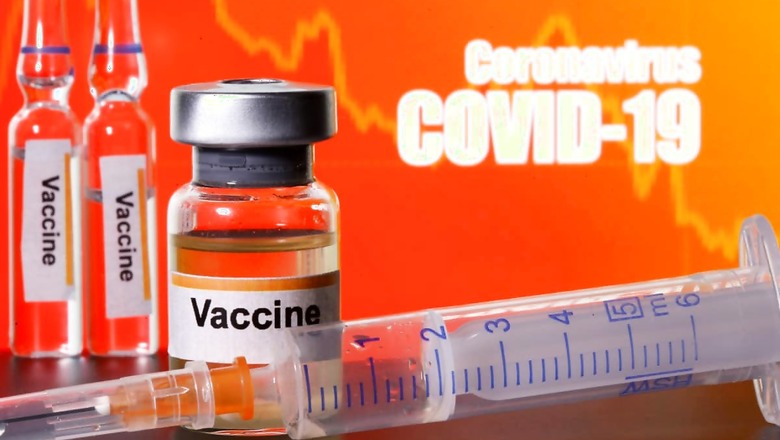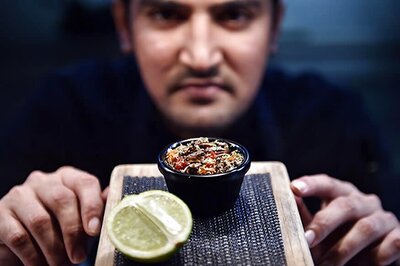From Vaccine Candidates to Success Rates, All You Wanted to Know About Covid-19 Shot Trials in India

views
A year has passed since the first few cases of novel Coronavirus infections were detected in China’s Wuhan province. In this period, the world’s scientific community together with government regulators have broken new ground to develop and test vaccines against Covid-19 that may bring an end to the pandemic.
These efforts have started to come to fruition as some of the leading vaccine candidates have shown promise in preventing, both, the severity of Covid-19 disease and the infection itself. Closer home, human clinical trials on different vaccines have made good progress, even as no interim data is available on them as yet.
What are these vaccine candidates undergoing trials in India and what are the challenges involved in using them? Which vaccines have shown promise internationally? News18 delves into the progress of these vaccines.
How many vaccines are undergoing clinical trials in India?
Five vaccine candidates are currently undergoing clinical trials in India and are in different stages of trials. These include vaccines developed by Oxford University – AstraZeneca, Bharat Biotech, Cadila, Biological E – Baylor College of Medicine and Gamaleya Research Institute, Moscow.
Which companies have tied up with foreign-based vaccine developers?
Indian vaccine manufacturers, pharmaceutical companies and biotech companies have inked deals with foreign based vaccine developers. These deals range from conducting clinical trials and manufacturing of vaccines, like in the case of Serum Institute of India, to becoming domestic partners for the sake of clinical trials and for distribution, in the case of Dr.Reddy’s Laboratories and Russia’s Sputnik V vaccine.
Serum Institute of India (SII), Pune, has inked deals with Oxford-AstraZeneca, Codagenix and Novavax to manufacture their vaccines. SII is mass-manufacturing the Oxford-AstraZeneca vaccine and according to Bloomberg News, it is expected to produce 100mn shots by end of the year. SII is also Oxford-AstraZeneca’s domestic partner to conduct clinical trials in the country.
Hyderabad-based Biological E Ltd., US-based Dynavax Technologies Corporation and Baylor College of Medicine, a health sciences university in Houston, Texas have partnered on Covid-19 vaccine candidate. Biological E has also entered into an agreement with Janssen Pharmaceutical for the latter’s vaccine candidate, according to the website of Biological E.
Pharma giant Dr.Reddy’s Lab, another Hyderabad-based company, has tied up with the Russian Direct Investment Fund (RDIF) to conduct Phase 2 and Phase 3 clinical trials of the Sputnik V vaccine developed by Gamaleya Research Institute.
What is the progress made in clinical trials?
Bharat Biotech Ltd and Indian Council for Medical Research began phase-III trials of Covaxin on November 16 across 25 centres in India and it will involve giving shots to 26,000 volunteers. The company claimed that it is the largest clinical trial in India for a Covid-19 vaccine.
Volunteers will receive two intramuscular injections approximately 28 days apart.
SII and ICMR finished enrolment for Phase-III Covishield vaccine that was developed at Pune with a master seed from Oxford-AstraZenenca. ICMR is funding the clinical trial site fees. SII has already manufactured 40 million doses of the vaccine, under the at-risk manufacturing and stockpiling license from DCGI, ICMR and the company announced last week. Covishield’s Phase-III trials will involve 1,600 participants as per Clinical Trial Registry – India.
Ahmedabad-based Cadila Healthcare is currently finishing phase-II trials on over 1,000 volunteers across nine sites while Dr.Reddy’s Lab will soon begin an adaptive Phase-II and III trial of the Sputnik V vaccine developed in Russia. Biological E began Phase-I and II combined trials of its vaccine just a few days back.
Has any of the Indian vaccines released interim results yet and which ones are likely to finish trials first?
None of the Indian companies have released interim results. Oxford-AstraZeneca vaccine’s Phase-III data is expected in December. If the data is positive, SII is likely to seek an early use authorisation for Covishield. SII-ICMR and Bharat Biotech-ICMR are likely to finish their Phase-III efficacy trials before others in India.
What are the challenges involved in storing and deploying these vaccines?
Logistical challenges facing the Centre in administering the vaccine comprises cold chain systems for proper transportation and storage. Once approved, vaccines would have to be transported to hospitals and other designated immunisation sites in planes, refrigerated trucks and ice-boxes during the last mile delivery. Adequate cold chain facilities are an imperative to prevent the vaccine from becoming ineffective at warmer temperatures.
Besides, at hospitals and designated immunisation sites, there will be a huge requirement of vials, syringes, gauze and alcohol swabs to administer the shot. Storage of the vaccine at specific temperatures will be a major hurdle since vaccine candidates in contention have different storage requirements. The storage issues are also compounded some of these vaccines are double dose shots
For instance, Covishield, the Oxford vaccine developed by SII in Pune and Johnson and Johnson – Biological E vaccine requires storage at 2-8 degree Celsius temperature. On the other hand, Sputnik V, Moderna and Pfizer-BioNTech vaccines require storage at temperatures lower than -18, -20 and -70 degree Celsius during transportation. Moderna’s vaccine can be stored at refrigerator temperatures for 30 days.
Read all the Latest News, Breaking News and Coronavirus News here

















Comments
0 comment